Mansfield funeral directors and celebrants reflect on 'heartache and pressure' of work through pandemic
and live on Freeview channel 276
The arrival of Covid-19 has brought a raft of challenges to the industry – from a tragic rise in deaths to the introduction of social distancing measures restricting the number of mourners attending funerals.
Also known as undertakers or morticians, funeral directors are often the first people to provide support to families after a death.
Advertisement
Hide AdAdvertisement
Hide AdMuch like NHS staff, they too have found themselves on the frontline of a deadly virus.
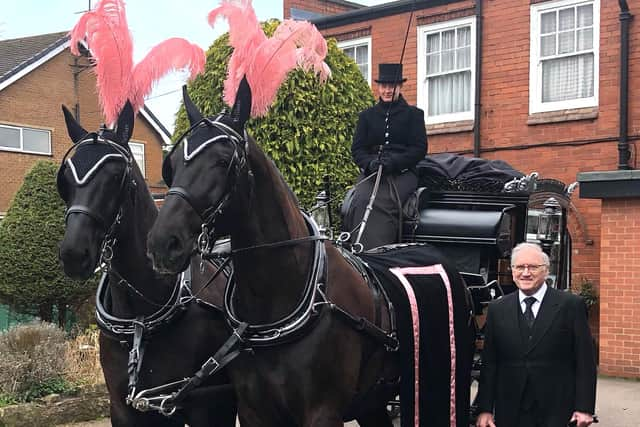

The pandemic has brought changes to their tasks which include embalming the deceased, carrying out burials or cremations, conducting funeral ceremonies and supporting families coping with death.
Well-known Warsop business GA Townroe & Son Funeral Directors has experienced major changes in the past year.
Eric and Shirley Townroe, with daughters Elaine Townroe and Alison Jennison, run the family firm on High Street.
Advertisement
Hide AdAdvertisement
Hide AdIt was started in 1947 by Eric’s dad and was known as George Aubrey Townroe and Son.
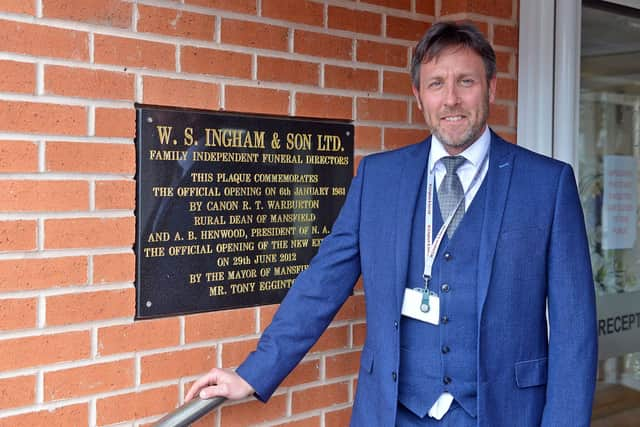

The ‘son’, Eric, is now 78 and joined the business in 1966.
Eric said: “Right from the start, since last March, everything changed. It put us in a difficult position as my wife and are both over 70 and had to shield.
"We’d always worked from our home, but for safety we had to open a side office beside the chapel of rest manned by our daughters. Our business saw a massive increase in its workload.”
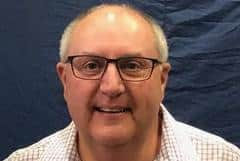

At the same time, the company – which employed 10 people – had to furlough three members of staff aged over 70.
Advertisement
Hide AdAdvertisement
Hide AdShirley said: “We had to enlist other people, and they came through with flying colours. Eric could no longer do the funerals, so one of the bearers Gary Hinchliffe stepped in to help, directing the funeral and cremations.
"He did a sterling job with other staff members, we are very grateful.”
Eric would normally go out to people’s homes to discuss services with grieving families, but the the pandemic has led to everything being arranged by telephone.
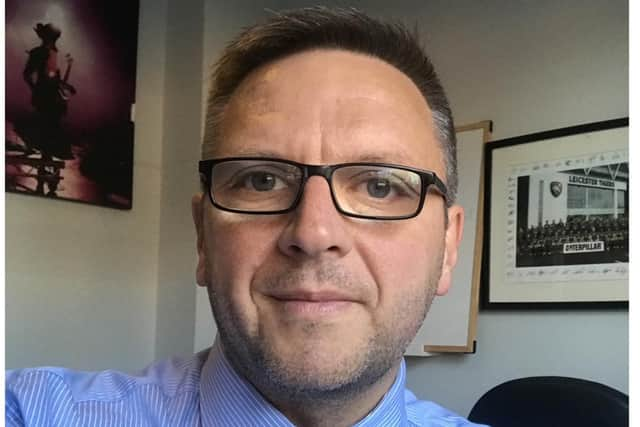

"There were so many ways people had to adapt their funerals,” said Eric.
Advertisement
Hide AdAdvertisement
Hide Ad"Even down to things like people in bubbles using their own cars and not using limousines. The number of people who could attend was reduced which was very hard for people.
"The social distancing made it much harder for grieving families going through heartache yet having to arrange tributes for loved ones over the phone.
"You couldn’t be close, not even to offer a reassuring arm at a time when they needed human support. It’s an important part of our job, to make people feel comfortable. It’s a privilege to help a family through a bereavement.
"The pandemic brought intense pressure and stress to everyone, but we appreciate the patience and understanding shown by all our bereaved families.”
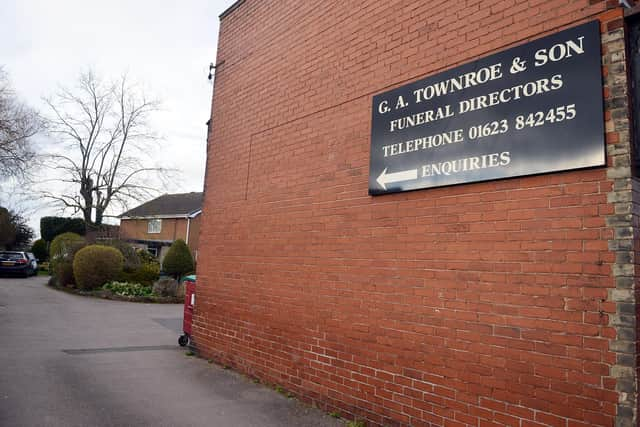

Advertisement
Hide AdAdvertisement
Hide AdTony Ingham, managing director for 34 years at Forest Town’s W. S. Ingham & Son Ltd, described the ‘impersonal’ experience of having to adapt to working with personal protective equipment.
“We’ve been exceptionally busy and had to adapt to very different ways of working,” he said. “You couldn’t offer the same services and guidelines were changing so quickly.
"At the end of the day, like other businesses dealing with Covid, it’s about keeping people safe.
"The full PPE seems very impersonal but it had to be worn for safety.
Advertisement
Hide AdAdvertisement
Hide Ad“One of the hardest things was adapting to working in PPE – goggles, shields, masks, full overalls, over shoes – and, initially, it was hard to get hold of.
"There were times when it was so stressful and so frustrating but as an industry we pulled together to support each other.”
The firm employs 10 staff members, including coffin bearers and office workers.
Tony said: “We were lucky none of our staff were furloughed, but our workload increased and caused stress on everyone.
Advertisement
Hide AdAdvertisement
Hide Ad“We would normally meet the bereaved family at home or office but we couldn’t do that due due to high infection rates. We did more by email and phone. It has worked, but it has been different.
"Covid has been a very isolating experience for many people especially for those going through a bereavement.
“Hopefully we will get back to some level of normality soon, back to how funerals were arranged before. Hopefully families will again be able to get together to celebrate their loved ones with family.”
Drew Baxter, who recently retired as a Mansfield celebrant, described the early days of the pandemic as ‘awful’.
Advertisement
Hide AdAdvertisement
Hide Ad“It was in those early days of the pandemic when only five family members could attend – even with 30, some families have to make choices over who can attend,” he said.
"As someone who ‘celebrates life’ during a service, that mood of celebration was very hard to capture. It was one of the reasons I was glad to step back, I really didn’t feel I could do the job in the way I wanted to do it with the restrictions in place.”
Fellow celebrant Wayne Swiffin said the industry was now looking forward to ‘some form of normality’ returning.
“While Covid restrictions have caused some heartache in terms of how many friends and relatives can attend a funeral service, I think a lot of people have accepted it and just got on with it. The fact that services can be broadcast on the internet has been a huge benefit to many people,” he said.
Advertisement
Hide AdAdvertisement
Hide Ad“It’s a shame that wakes and larger get-togethers haven’t taken place after a service, but again people have said they’ll get together when restrictions are lifted.
“From a personal point of view, restrictions have meant that I cannot shake hands, or give someone a comforting hug. Little things like that make it slightly different these days, but we simply get on with things and wait for some sort of normality to return.”